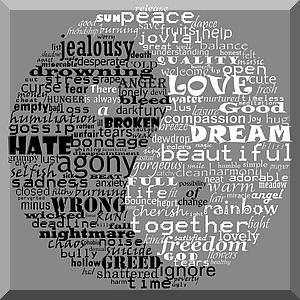English Expressions Deliberately Undermining Africa

 |
| Black is ascribed negative terms |
The Calamity Of Words: A Message to Blacks
Introduction
When I was in High School (in the continent of
paint someone black; black sheep of the family; black book; black listed; black mail; blacken one’s character; Black market; black devil;blackguard; black maria; black-hearted; black death; black magic; black widow.
Who taught my educators those metaphors (hereafter, phrases)? From what fountainheads did those phrases (which have been, and continue to be passed on from generation to generation) come from? What were the intents of the people (who coined those phrases)? Were those phrases formed before my race was given the name "black," or was my race given the name "black" before those phrases were formed? Most importantly, why is it that we, the so-called "black" people, continue to use (and pass on) such phrases that outrightly demean, desecrate, and dehumanize us as children of God in spite of our current level of education?
While answers to the above questions are obviously important, I am not directly going to address them in this article. Instead, my concern here is to explore, rather briefly, the implications of the above phrases in our lives (because our perceptions of the world and its contents are influenced largely by language), and suggest that black men and women (all over the world) refrain from using them.
The Implications
What are the implications of the above phrases in our lives? To say the least, the implications (and the impacts) are damaging, terrifying, and enormous. For space consideration, I will point out a few.
First and foremost, many blacks have, at the macro level, come to accept (consciously or unconsciously) that black people are "of no good." By using such phrases as "you have painted me black" or "you blackmailed me" is, ipso facto, an acceptance of the theory (of the people who formed those phrases) that we are evil. Consider our custom (especially in
In a wedding I attended in
Further, the image of
Most damagingly, blacks tend to distrust and disrespect their own people and trust others (of different race). Consider the perpetual tardiness among black people. In Africa, it is called "African time;" in the
When I was traveling to my home country,
Remedies and Conclusions
To restore a people’s respect and dignity after centuries of caricature and dehumanization (through the power of words, symbolism, and language) is not an easy task. The task is monumental. Nonetheless, such task is worth pursuing no matter how small.
My fellow black people, it has dawned upon me (and should be dawned upon you) that the word "black" has been cleverly used to describe anything ugly, bad, evil, and sinister. This, by implication, portrays us as ugly, evil, sinister, unlawful, stupid, ignorant, and sometimes plain dumb. As such, we should, as a matter of decency and urgency, refrain from using any word or phrase that dehumanizes, cajoles, and insults us as a race. How? We must embark on a revolution— revolution of words. That is, in our statements, we will never ever use the word "black" pejoratively. There are many substitutes. For instance, "black market" should be described (more appropriately so) as illegal market because (if you really think about it) black people are not the only participants in such market. Black is beautiful, just as any color.
By
Professor of American Government, and the author of African Lifestyle and Problems of Development: The Nigerian Example (1995).
Courtesy: Umez.com.
